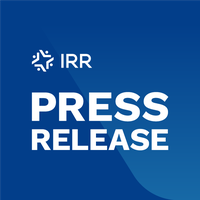
The Institute of Race Relations has made written and oral submissions to Parliament in opposition to the South African Reserve Bank (SARB) Amendment Bill.
The Bill, tabled by Economic Freedom Fighters leader Julius Malema in 2018, is moving forward to a committee vote on “desirability”. The IRR warned that it is undesirable, uneconomical, unfunded, unconsidered, and unconstitutional.
To start, the Bill expropriates the shareholders of the SARB without compensation, which is a direct violation of constitutionally protected property rights.
The shares are worth an estimated R20 million, so no one can seriously claim that the Bill would expropriate these shares without compensation to save the fisc money.
Rather, the real purpose of such an exercise is to try to set a precedent that any shares in the country can be expropriated without compensation, including trillions of rands worth of stock and bond securities that depend on SARB’s prudent monetary management.
So extreme is the Bill’s threat of expropriation without compensation that even the government, and members of the ANC, have voiced public opposition to it. Treasury official Christopher Axelson, representing the government, spoke out at length in opposition to this danger, and to other dangerous aspects of the Bill before Parliament.
Says IRR Fellow Gabriel Crouse: “The effort to expropriate rural landowners in the hinterland is death to property rights by a thousand cuts. Expropriating SARB shareholders without compensation poses the same threat, only faster, like an atom bomb.”
SARB’s 802 shareholders make very little money from those shares, with dividends limited to R1,000 per annum, but do get to elect seven of the SARB’s 15 directors.
This decentralised, minority input provides a public-private engagement mechanism that has evidently helped implement the “primary object” of the SARB, which is, “to protect the value of the currency”, according to the Constitution.
SARB is arguably the most successful government institution at hitting its target. Over the last quarter of a century it has largely succeeded in maintaining inflation within the 3% - 6% target range that was nominated for it by the then minister of finance back in 2000.
Most of South Africa’s thousands of other organs of state have, by stark contrast, been riddled with ongoing state capture, often taking them well beyond the point of bankruptcy.
Most organisations where the state is the “sole shareholder” are so badly off that President Cyril Ramaphosa’s first, second, and third presidential terms have included repeated calls for “reform” through “public-private partnerships” that increase the role of the private sector.
So why, in this local environment, would anyone want to make the same overburdened state the “sole shareholder” of one of the only bastions of excellence, namely SARB?
Malema, the Bill’s sponsor, leaves no room mystery about it. Malema openly calls for total nationalisation of the land, banks, and mines, which would be significantly easier if the SARB was captured, and forced to abandon its mandate temporarily by stocking rampant inflation.
That sudden loosening of monetary policy would produce what luminary SARB Governor Lesetja Kganyago has warned would be a “deep depression”. It would also create enough chaos to facilitate a deeper round of state capture.
Crouse concludes: “This is a test for the GNU. The MK, EFF, and Action SA signalled support for the Bill in Parliament. If the ANC joins those parties in keeping the Bill alive to spite its investment-friendly GNU partners, this will damage government unity. More importantly, it dangles a threat over everyone’s future prospects, and the lifesavings of those who have any.”
Media contact: Gabriel Crouse, IRR Fellow Tel: 082 510 0360 Email: gabriel@irrlegal.org.za
Media enquiries: Michael Morris Tel: 066 302 1968 Email: michael@irr.org.za
 LETTER | Rethinking BEE premiums could unlock billions for growth - Business Day
Feb 19, 2026
LETTER | Rethinking BEE premiums could unlock billions for growth - Business Day
Feb 19, 2026
 IRR’s 2026 Budget tips for Minister Godongwana
Feb 19, 2026
IRR’s 2026 Budget tips for Minister Godongwana
Feb 19, 2026
 Corruption-busting must begin with next week’s Budget – IRR
Feb 18, 2026
Corruption-busting must begin with next week’s Budget – IRR
Feb 18, 2026
 Hold Ramaphosa to account for his SONA admissions of failure, IRR urges MPs
Feb 17, 2026
Hold Ramaphosa to account for his SONA admissions of failure, IRR urges MPs
Feb 17, 2026
 Corrigan pt. II: FMD crisis — How did we get to this point? - Biznews
Feb 16, 2026
Corrigan pt. II: FMD crisis — How did we get to this point? - Biznews
Feb 16, 2026

 LETTER | Rethinking BEE premiums could unlock billions for growth - Business Day
Feb 19, 2026
LETTER | Rethinking BEE premiums could unlock billions for growth - Business Day
Feb 19, 2026
 IRR’s 2026 Budget tips for Minister Godongwana
Feb 19, 2026
IRR’s 2026 Budget tips for Minister Godongwana
Feb 19, 2026
 Corruption-busting must begin with next week’s Budget – IRR
Feb 18, 2026
Corruption-busting must begin with next week’s Budget – IRR
Feb 18, 2026
 Hold Ramaphosa to account for his SONA admissions of failure, IRR urges MPs
Feb 17, 2026
Hold Ramaphosa to account for his SONA admissions of failure, IRR urges MPs
Feb 17, 2026
 Corrigan pt. II: FMD crisis — How did we get to this point? - Biznews
Feb 16, 2026
Corrigan pt. II: FMD crisis — How did we get to this point? - Biznews
Feb 16, 2026